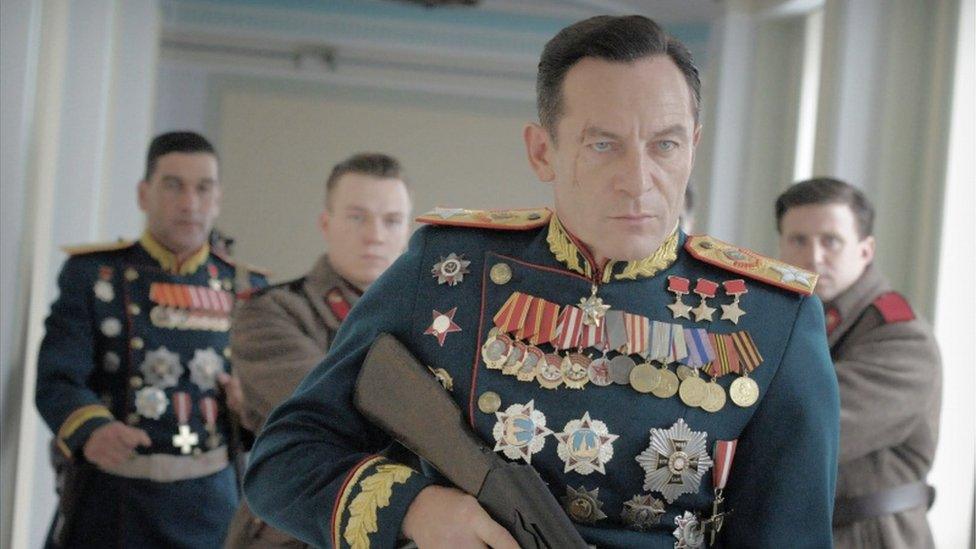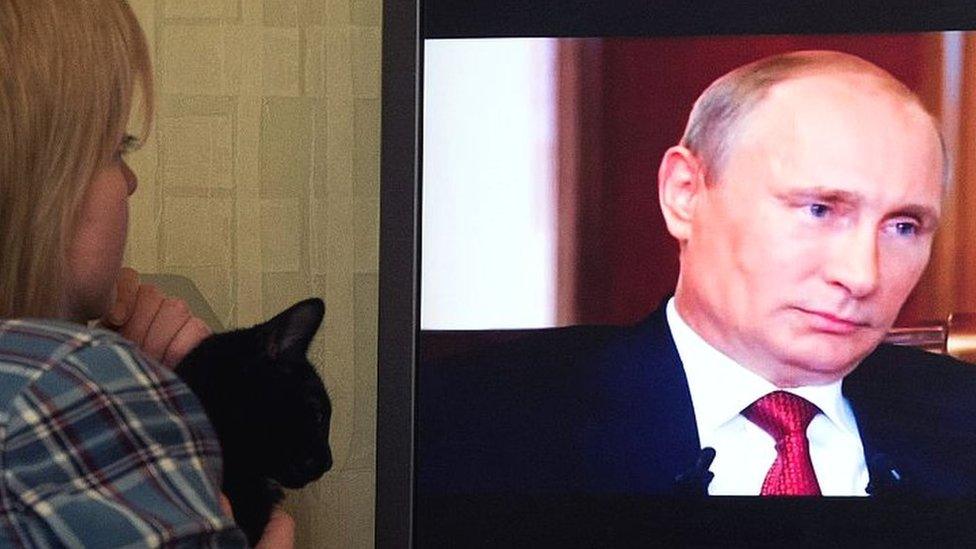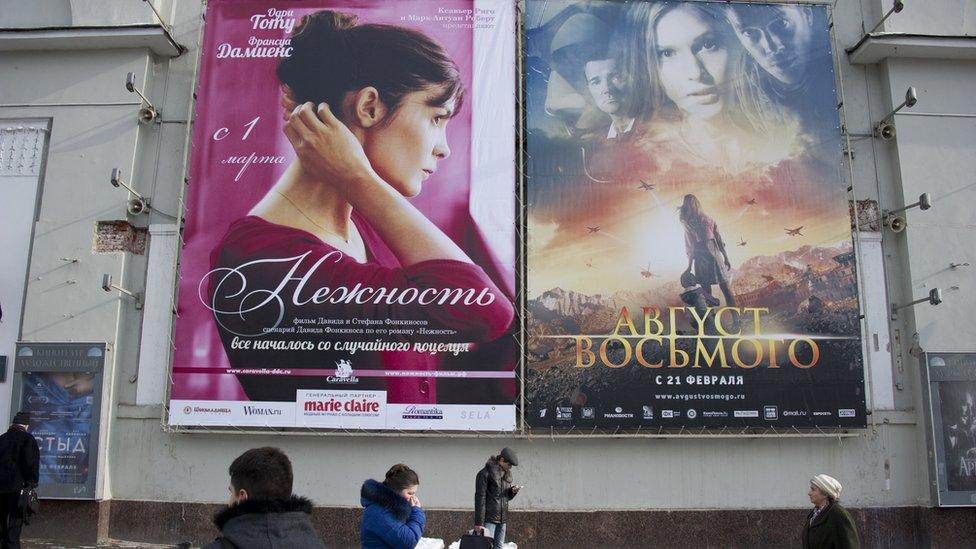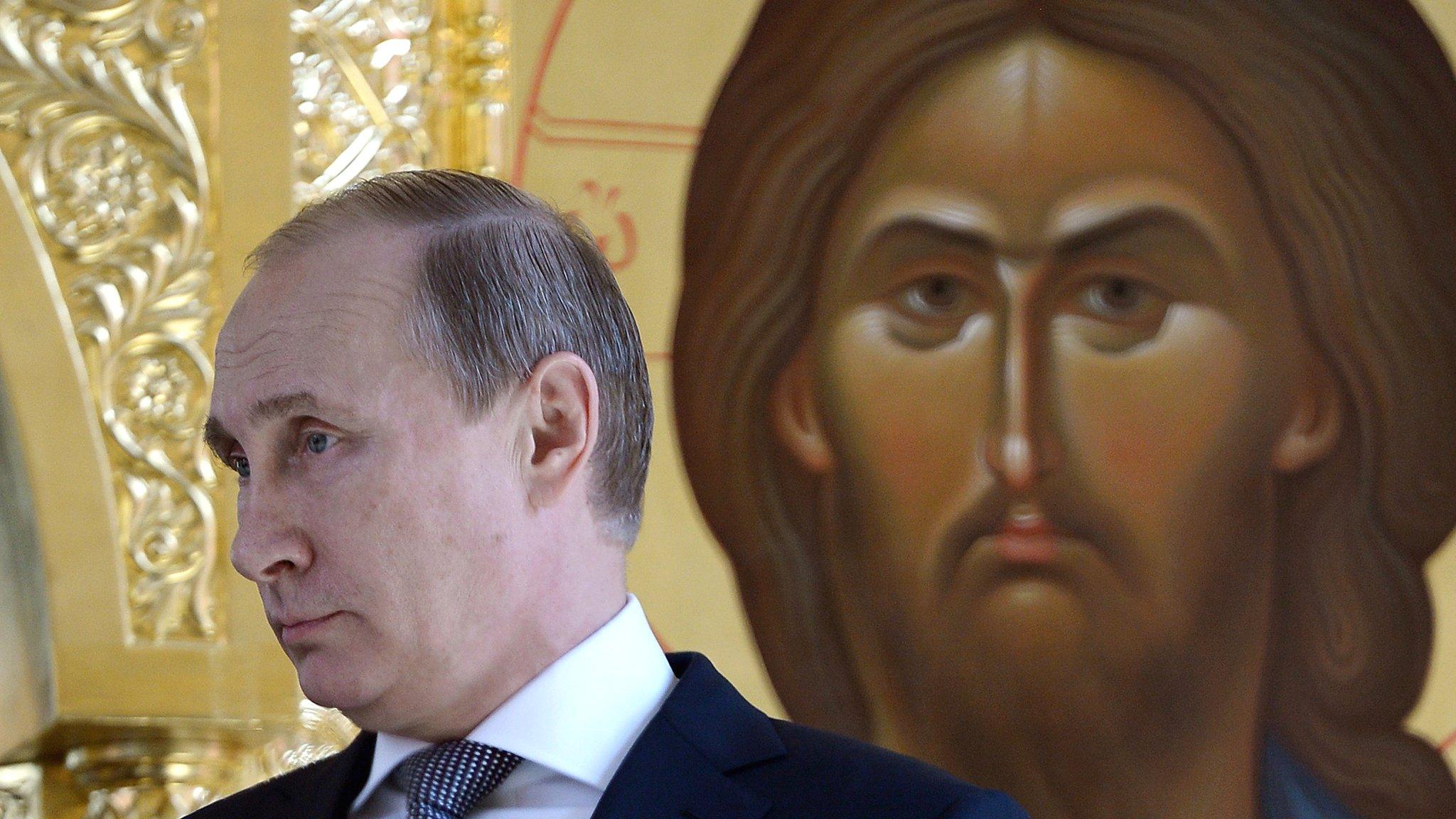'Censorship' or 'insult'? Russians react to The Death of Stalin ban
- Published

Jason Isaacs as Marshal Zhukov in Death of Stalin
When British comedy The Death of Stalin was banned by Russian officials after they watched a private screening, film fans took to social networks to express their frustrations.
Yury Polyakov, a member of the ministry of culture's advisory council, who was at the screening, said The Death of Stalin should not be shown in Russia because it contained aspects of "ideological warfare".
Critics of the ban are calling it "blatant censorship", whilst others call the film an "insult" that "does not deserve to be shown in Russia".
The film received support from Polina Nemirovskaya, a liberal politician, who tweeted, external that she was appalled "a group of old men from a 'public council' decide what I can see at the cinema". Her comments on the film have been liked more than 1,000 times.
Allow X content?
This article contains content provided by X. We ask for your permission before anything is loaded, as they may be using cookies and other technologies. You may want to read X’s cookie policy, external and privacy policy, external before accepting. To view this content choose ‘accept and continue’.
The film, which was released in the UK in October 2017, is a satire of the power struggle in Moscow following Soviet dictator Joseph Stalin's death in 1953.
Pro-Kremlin journalist Dmitry Steshin wrote, external that the satire was "perhaps is the most sickening film about the USSR in recent history" and tweeted that it was a "comedy that Hitler could have written, external".
Allow X content?
This article contains content provided by X. We ask for your permission before anything is loaded, as they may be using cookies and other technologies. You may want to read X’s cookie policy, external and privacy policy, external before accepting. To view this content choose ‘accept and continue’.
"Complete rubbish" was the opinion of politician Alexander Hinstein, external, after he saw the film.
Allow X content?
This article contains content provided by X. We ask for your permission before anything is loaded, as they may be using cookies and other technologies. You may want to read X’s cookie policy, external and privacy policy, external before accepting. To view this content choose ‘accept and continue’.
Sergey Snegirev, external also supported the ban, he said the filmmakers had "turned a tragic and heroic time in our country's history into cheap banter. Idiots!"
You might also like:
The irony of the ban was not lost on more than 3,000 Twitter users who liked this sarcastic tweet, external from a popular spoof account @StalinGulag: "The distribution of the film The Death of Stalin has been cancelled in Russia. There is no censorship in the country."
Allow X content?
This article contains content provided by X. We ask for your permission before anything is loaded, as they may be using cookies and other technologies. You may want to read X’s cookie policy, external and privacy policy, external before accepting. To view this content choose ‘accept and continue’.
Music critic Artemy Troitsky condemned the cancellation, external, drawing parallels between modern Russian bureaucrats and Soviet censors. He felt the film was worth watching as "it is funny in an English way and scary in a Russian way".
Allow X content?
This article contains content provided by X. We ask for your permission before anything is loaded, as they may be using cookies and other technologies. You may want to read X’s cookie policy, external and privacy policy, external before accepting. To view this content choose ‘accept and continue’.
Opposition politician Dmitry Gudkov took to Facebook to sarcastically "congratulate" the censors, external, writing: "They have already left their trace in history. But please, put your cudgels aside and go to the ashbin of history."
Complaints about censorship came, perhaps surprisingly, from a (usually) pro-Kremlin commentator Maxim Kononeko, external on the social media platform Telegram, who wrote: "If The Death Of Stalin is not released to the general public it will be the first case of a genuine state censorship. It is a direct violation of the constitution."
In an act of defiance some bloggers are sharing the film on Russian social networks. As one VK user Alexey Punkin, put it: "If it is banned, then it must be worth watching, external."
- Published6 March 2023

- Published18 May 2017

- Published21 January 2018
